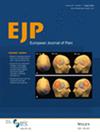Status and Opportunities for Improvement in Pain Education in Europe: A European Pain Federation EFIC Multiple-Methods Study
Abstract
Background
Pain is one of the most prevalent health issues in Europe, yet the quality of pain education for healthcare professionals remains unclear. This study assessed the status of undergraduate and postgraduate pain education for nurses, physicians, psychologists, and physiotherapists across Europe, identifying key strategies to enhance training and improve healthcare outcomes.
Methods
A study using multiple methods was conducted, comprising a scoping review, an online survey of educators, and qualitative interviews with EFIC chapters and professional educational bodies.
Results
The scoping review of 11 studies revealed a paucity of evidence, with significant heterogeneity in the hours dedicated to pain training and inconsistencies in both content, teaching, and assessment methods across European curricula. The survey of educators (n = 511) showed wide variability in pain education coverage, with psychology curricula particularly underrepresented compared to the more structured programmes in medicine and physiotherapy. The interviews highlighted curriculum constraints, lack of resources, and limited specialised staff as key barriers. They also underscored the importance of integrating pain education across all disciplines through international and interdisciplinary collaboration to enhance training efforts.
Conclusions
Significant gaps persist in the depth, consistency, and delivery of pain education for undergraduate and postgraduate health professionals across Europe. The absence of standardised, evidence-based curricula underscores the need for consistent pain education across all disciplines. Implementing targeted educational standards, increasing interdisciplinary training, and supporting qualified educators are essential to address this fragmented landscape. Standardising pain education has the potential to greatly improve patient outcomes by equipping healthcare professionals with more effective pain management skills.
Significance Statement
This multiple method study provides an updated and comprehensive overview of the current state of pain education for healthcare professionals in Europe at undergraduate and postgraduate levels. Substantial gaps remain in the depth, consistency, and delivery of pain education for both undergraduate and postgraduate healthcare professionals across Europe. This underscores the need to enhance pain education at the undergraduate level, with EFIC's existing medicine and physiotherapy resources offering potential models, alongside wider efforts to implement comprehensive postgraduate training. Standardising the delivery of targeted pain education has the potential to greatly improve patient outcomes by equipping healthcare professionals with more effective pain management skills.


 求助内容:
求助内容: 应助结果提醒方式:
应助结果提醒方式:


